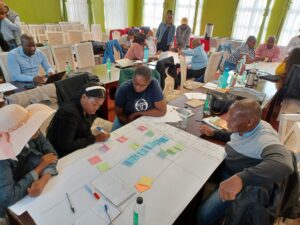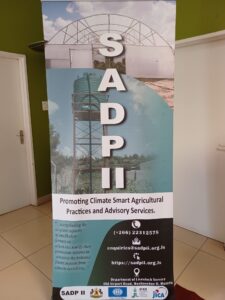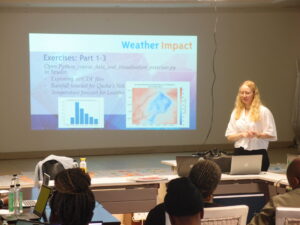Capacity building in Lesotho
During our trip to Lesotho last week, we had the opportunity to train a wide variety of ca. 40 stakeholders on the development, use and benefit of agro-weather tools for the farmers of Lesotho, Southern Africa. This capacity building training week is part of a 1.5-year assignment of Weather Impact by the Smallholder Agricultural Development Project (SADP-II), funded by World Bank and IFAD, to
1) provide agro-weather tools and disseminate them to farmers
2) build local capacity to create local ownership of such tools and facilitate sustainability after it ends.
Participants are from various backgrounds, such the Lesotho Meteorological Service (LMS), the Ministry of Agriculture and Food Security (MAFS), Bureau of Statistics and agro-extension officers from across the country. Overarching message is that all expertise’s are needed for accurate and impactful agro-weather tools: have a good farmer database, provide timely and tailored weather information, combine this with the vast amount of local agronomical information available, and make sure to choose the correct dissemination method (like SMS, an app, Telegram or bulletins). On top of this, automization and operationalization of such processes is needed to make it scalable. A long list of topics, so it is quite a challenge to touch upon all this week!
For the training we were in Qacha’s Nek, a remote but very beautiful mountain village in the east of Lesotho. As all participants and trainers were staying in one conference centre, we were able to make (very) long and intensive training days but are also sharing dinner and a beer together to strengthen relationships. The success of agro-weather tools is for a large part dependent on the collaboration between the stakeholders.




